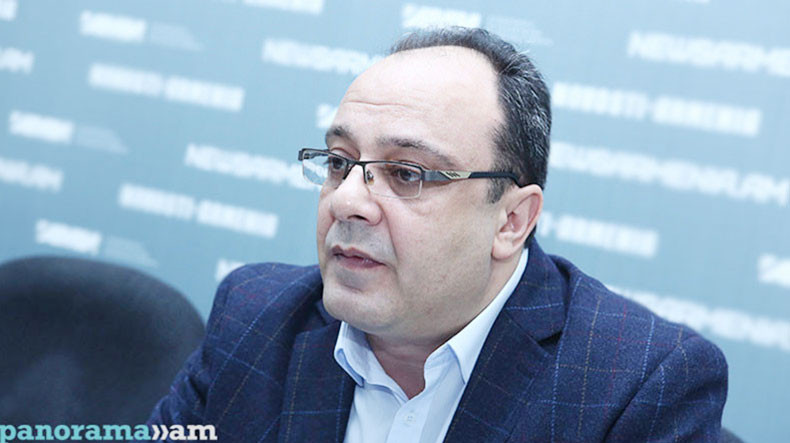
MP says Minsk Group Co-Chairs worked actively in 2017 despite achieved outcomes
In 2017, we witnessed more than a dozen statements and messages on the Nagorno-Karabakh conflict settlement by the OSCE Minsk Group Co-Chairs, which comes to show that the mediation process was quite active. The Co-Chairs worked quite actively, but the question is how efficient that work was, MP Karen Bekaryan, Chairman of the European Integration NGO, told a news conference on Wednesday.
Nagorno-Karabakh conflict
The lawmaker highlighted the joint statement of the foreign ministers of Armenia and Azerbaijan, as well as the five meetings between the Armenian and Azerbaijani FMs and a meeting between the presidents of the two countries in Geneva in the conflict settlement process.
“The negotiation process was based on several key points. On one hand, it is the Vienna-St. Petersburg-Geneva circle aimed at reducing the border tensions. On the other hand, it focused on pushing forward the peace talks. Thus, the mediators and the negotiating parties are trying to carry out two-folded activities,” he stressed.
Touching upon the frontline situation, the MP stressed it is impossible to expect any outcome from the Karabakh talks amid the ongoing shootings and fatalities on the frontline. If the parties are seeking a breakthrough in the negotiations, first of all peace must be maintained on the border.
“There have been victims and the wounded due to border incidents in the ongoing year. To claim that it has been a year of relief would be wrong. Elements of relief were only observed after the Geneva meeting,” he stated, attaching special importance to the technical replenishment measures on the frontline, due to which the sabotage infiltration attempts have sharply declined.
Regional developments
The speaker stressed Turkey and Azerbaijan will continue their policիes of blockading Armenia.
“Azerbaijan faced certain difficulties this year, with backward trends observed in the country’s human rights organizations. Azerbaijan’s failure to implement the judgements of the European Court of Human Rights also caused a major uproar. The country’s image was greatly damaged after being caught up in corruption scandals. Repressions against certain political figures, reporters and bloggers continued in Azerbaijan,” Karen Bekaryan reminded.
Reflecting on the Catalan and Kurdish independence referendums, the expert noted that if Catalan, which has a high level of democracy and does not deal with any issues regarding repressions and security, takes such a step, a logical question arises here how can those cases not be accepted when the independence is closely linked to a people’s existence. “The Iraqi Kurdistan also saw quite an interesting situation. Peshmerga fighters, together with the government forces, fought against a common enemy,” he reminded.
Domestic political issues
Karen Bekaryan highly stressed the Armenian parliamentary elections held this year were highly evaluated by international organizations. "The most important event of the year in Artsakh was the constitutional referendum. This is another proof and justification for an independent, legitimate co-existence, which shows the public obtains a mechanism to express a common opinion,” he said.
Commenting on the new Armenia-EU agreement, the lawmaker drew attention to the fact the newly signed document envisages the necessity of a peaceful settlement of the Artsakh issue. “It is one thing when an official from a country issues a statement on the conflict, but it is a completely different thing when 28 countries express a joint opinion in a document. We are dealing with the same situation in the CSTO,” the parliamentarian concluded.
Newsfeed
Videos






























